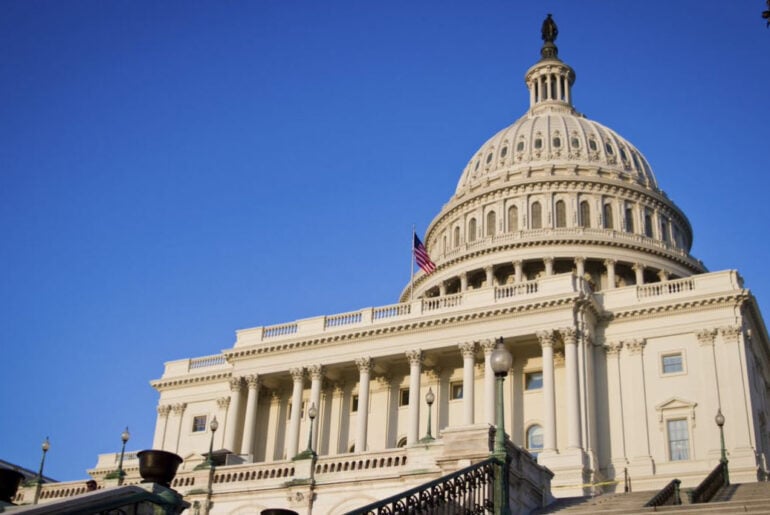The new premerger filing form and rules for complying with the Hart-Scott-Rodino Act (HSR Act) are now effective. While a legal challenge to the changes remains pending, any revisions or recissions by a federal court or the Trump Administration’s Federal Trade Commission or Antitrust Division leadership have not stopped today’s implementation.
As such, parties to all M&A transactions that require an HSR Act filing must use the new notification forms, which require the submission of substantially more information and documents. Parties should be prepared to spend additional time and to incur increased costs associated with HSR Act compliance.
In the first two days of his presidency, President Trump signed a series of executive orders aimed at dismantling diversity programs across the federal government, revoking longstanding DEI and affirmative action requirements for federal contractors, and directing public and private entities to end policies that constitute “illegal DEI discrimination”.
President Trump has taken quick action to ramp up immigration enforcement in his first days in office. While Trump’s early focus on deportations and border security is not new, the swift and aggressive enforcement approach represents a significant change as compared to prior administrations. These actions have led to arrests and heightened concerns among employers and employees alike.
On 23 January 2025, the US Supreme Court granted the US government’s application to end the nationwide preliminary injunction against enforcement of the Corporate Transparency Act (CTA) issued by the District Court in Top Cop Shop on 3 December 2024. This injunction is currently on appeal with the Fifth Circuit. However, a separate nationwide order that also stayed the CTA beneficial owner reporting deadline remains in place. This order was issued by a different federal judge in Smith v. US on 7 January 2025.
On January 16, 2025, the Department of Justice and the Federal Trade Commission replaced the 2016 Antitrust Guidance for Human Resource Professionals. The new guidelines now titled, Antitrust Guidelines for Business Activities Affecting Workers, reaffirm the major points of the 2016 guidelines. Wage-fixing and no poach agreements remain illegal and sharing wage information may violate the antitrust laws. However, the new guidelines identify a slew of other agreements and practices that can violate antitrust laws, including franchisee agreements with employment restraints, non-compete clauses, overly broad non-disclosure agreements, and other employment restraints.
On January 14, 2025, the Department of Justice, Antitrust Division and Department of Labor, Occupational Safety and Health Administration issued a Joint Statement, asserting that non-disclosure agreements (NDAs) undermine whistleblower protection laws, including the Criminal Antitrust Anti-Retaliation Act (CAARA), when they deter or prevent an employee from coming forward. The Antitrust Division noted they are focused on allowing individuals to report antitrust violations without the fear of retaliation. The Joint Statement also warns against using NDAs as an improper shield to obstruct an investigation, which may result in separate federal criminal violations for companies.
On 17 December 2024, the Bipartisan House Task Force on Artificial Intelligence released a report on “guiding principles, forward-looking recommendations, and policy proposals to ensure America continues to lead the world in responsible AI innovation.” The report focuses on 15 key areas, including intellectual property, data privacy, healthcare and federal preemption of state law. These principles, recommendations and policy proposals are meant to be a tool rather than the final word on AI. As such, it is anticipated that future AI legislators will use the report to craft AI policy.
The Federal Trade Commission has just announced its annual adjustment to the notification thresholds that determine whether proposed transactions may trigger a filing obligation under the Hart-Scott-Rodino (HSR) Antitrust Improvements Act of 1976, as amended. The corresponding adjustments to the HSR filing fee schedule also were included in the announcement. The adjusted notification thresholds and filing-fee schedule will apply to transactions that close on or after the effective date, which will be 30 days after publication in the Federal Register and no earlier than 12 February 2025.
The Federal Trade Commission brought its first gun-jumping action in decades against crude oil producers XCL Resources Holdings, LLC, Verdun Oil Company II LLC, and EP Energy LLC, imposing a civil penalty of USD 5.6 million. A “gun-jumping” violation occurs when a proposed buyer exerts control over the operations of the target business before the expiration of the relevant waiting period under the Hart-Scott-Rodino Act. This settlement represents the largest penalty ever imposed for a gun-jumping violation.
On 23 December 2024, Canada’s Competition Bureau published draft guidelines concerning environmental claims and compliance with the Competition Act (the “Act”) for public consultation. Updated guidance on environmental claims has been much anticipated following recent amendments to the Act that explicitly prohibit greenwashing as a form of deceptive marketing.



